North Texas Football Offensive Preview
Former Washington State offensive coordinator Eric Morris takes over as the new North Texas head coach. Can we expect a more pass-heavy approach from the Mean Green?
At the end of last season, North Texas fired its head coach, Seth Littrell, after the loss to UTSA in the C-USA conference championship game (and Cal scooped up their offensive coordinator Mike Bloesch to be its new Offensive Line coach/Run Game Coordinator in the aftermath). Former Incarnate Word head coach/Washington State offensive coordinator Eric Morris makes his debut as North Texas head coach this Saturday. Morris, the former Texas Tech wide receiver who learned the Air Raid under Mike Leach (and later coached under Leach), runs a variation of the Air Raid that involves a lot more tight end play and QB runs than usual (called the “Coug Raid” last year, although I have no idea what North Texas will call it). North Texas will likely look to spread the field with 4-receiver sets, and attack the gaps in the defense with both runs and passes. Wilcox’s defenses have generally fared very well against Air Raid systems, but conversely have struggled against extremely mobile dual-threat quarterbacks— and North Texas has two such dual-threat quarterbacks in Stone Earle and one-time Cal target Chandler Rogers. They will also likely run a hurry-up offense, which may pose a challenge to the Cal defense in the forecasted hot and humid Texas weather this Saturday.
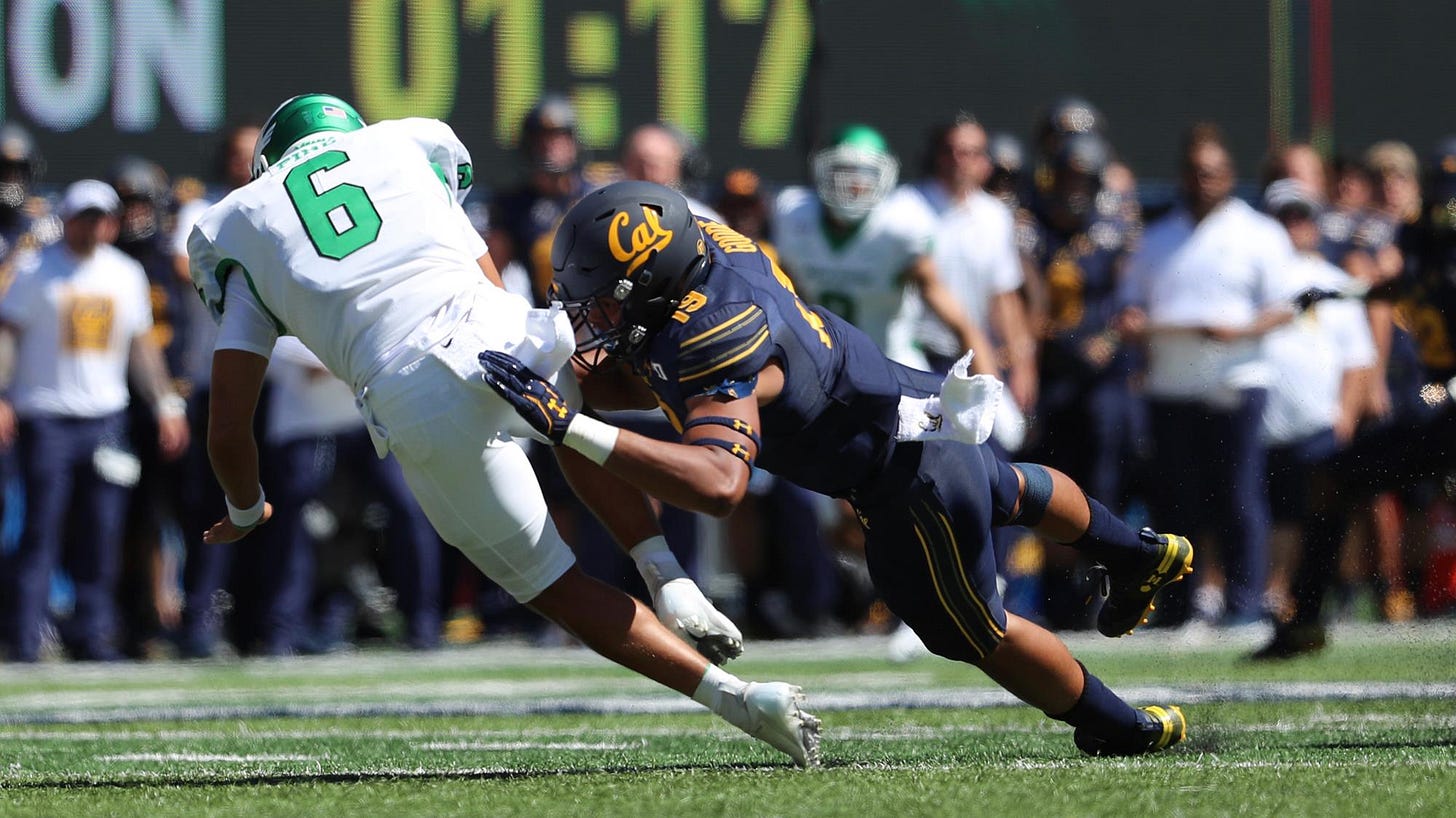
With all that said, let’s take a closer look at the positional breakdown.
Quarterback
North Texas is expected to start former Abilene Christian transfer Stone Earle. Admittedly, I wasn’t able to find too many Stone Earle ACU games, and he mainly played a handful of change-of-pace snaps last year for North Texas, so I don’t have a ton of tape to go on here. But my general impression of Earle was a quarterback that almost looked more comfortable running the ball than throwing it. Both ACU and North Texas used Earle in designed runs and QB draw plays, often using misdirection on the run. Here ACU lines up with 5 receivers for the designed QB run:
Both ACU and North Texas ran a lot of designed run plays with Earle, although with Earle as the starting quarterback, he should be more of a threat to pass the ball, and I’d expect to see a lot more RPO-type plays under Morris:
Earle often looks to initiate contact when running the ball, and is a pretty gutsy runner, although I would have to expect North Texas to tone that down a bit to prevent injuries as Earle takes a larger role in the offense this year.
I didn’t watch a ton of meaningful snaps from Earle, but from what I did see, he looks to have pretty good awareness in the pocket, even under pressure:
And again:
This may be an outdated observation, but in the old tape I watched, the younger Earle did have some ball security issues while running the ball or on the RPO handoff.
Recent reports are that Earle has made some big improvements to win the starting job, but I wasn’t particularly impressed with the way he threw the ball. For example, here he underthrows the deep ball after his receiver beats his man:
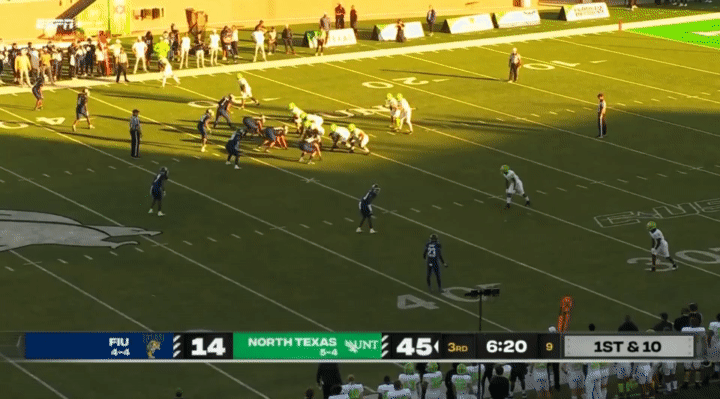
North Texas is also expected to play ULM transfer Chandler Rogers. Rogers is the more experienced quarterback and was probably expected to start for the Mean Green, but with both quarterbacks learning a new system, perhaps Earle is further ahead in his development. As mentioned earlier, Rogers is also a dual-threat quarterback, with decent arm strength and accuracy.
The quarterback situation is still a bit of question for North Texas. What isn’t a question, however, is the UNT run game.
Running backs
North Texas has a bevy of talented backs, and Cal might see as many as 4 or more Saturday. Their strongest running back, in my opinion, is Oscar Adaway, who will be returning for the first time since a season-ending ankle injury last year against Western Kentucky. Oscar Adaway is probably their most well-rounded back; with nice size and speed, a patient runner, and an ability to make some nice cuts.
Here he breaks a tackle and gets to the edge for a 35 yard touchdown:
Here he shows good vision and the ability to not go down on first contact:
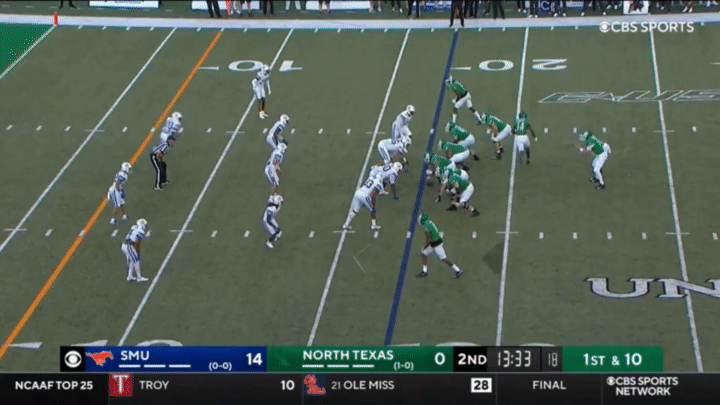
Adaway doesn’t often break off huge runs, but he reliably picks up chunks of yards when they need it:
In contrast to Adaway is the undersized speedster Ayo Adeyi.Adeyi is absolutely a homerun threat in the open field:
Although the smaller and shiftier Adeyi broke off a number of big runs, he did have some issues with ball security. For instance, he was stripped of the ball twice in the FAU game last year:
North Texas’s most improved running back last year was Ikaika Ragsdale, who came on strong late last season. Ragsdale, like Adaway, is a big back who does a good job of keeping his feet on contact and breaking arm tackles. He’s also a very patient runner, finding the seam and following his blockers for nice gains:
And the sort of play that got me excited for Cal’s new offensive line coach Mike Bloesch:
Although North Texas had a lot of inside runs last year, here Ragsdale gets to the outside for a nice gain:
Here Ragsdale gets free again for another big run:
Ragsdale was also the most targeted pass catcher amongst the running backs. I expect will see a lot more of this in Morris’ scheme:
Finally, Isaiah Johnson is a patient runner, not super elusive, that prefers to try and run through defenders. Johnson was often used in short yardage situations:
Although North Texas is moving to an Air Raid system, I expect they will lean heavily on their most experienced position group here.
Receivers
North Texas lost its most talented receiver last year to the transfer portal (Jyaire Shorter, who transferred to Auburn, so you’ll have to wait until next week to see his clips). I think their most exciting receiver this year will be Ja’Mori Maclin, who routinely torched defensive backs deep.
Maclin is a good route runner, and frequently used his route-running skills to get separation against weaker defensive backs:
Leaving a corner on an island is asking for trouble with Maclin:
Here Maclin again gets a crazy amount of separation, but does a good job adjusting to the underthrown ball as his QB throws it out of the endzone:
He didn’t show it too much based on the routes he was asked to run, but Maclin also showed some elusiveness after the catch:
Maclin also had some nice blocks that set up touchdowns on outside run plays.
Although North Texas lost Jyaire Shorter to the transfer portal, they did have a big gain from the portal in Texas Tech transfer Trey Cleveland. Just how ‘big’ I’m not sure—the rangy receiver was listed at 6’4” 190 lbs at Texas Tech but evidently lost 3 inches in height moving to Denton, where he’s now listed as 6’1” 193 lbs. Cleveland has good straight-line speed and a large catch radius, and I expect he’ll be a big target this season:
The speedy Maclin and Cleveland will line up to the outside as the X and Z receivers.
North Texas returns last year’s receiving yards leader in Roderic Burns. Burns didn’t show up in many highlights, but he was frequently targeted on shorter throws over the middle field or down the seam, like a possession receiver— hence why Burns is the designated Y-receiver (on the inside slot).
Burns is a reliable, sure-handed receiver who probably won’t make too many big plays, but he will make plays:
At the other inside slot position, Jordan Smart is listed as the starter (I would have guessed Kaylon Horton, but more on him later). Smart started to get meaningful playing time late last season playing in the slot. He has sure hands and a bit of speed:
His elusiveness after the catch led him to be involved in the run game, in the role Kaylon Horton was usually in:
Kaylon Horton is a burner. Like Maclin, Horton is a homerun threat on deep shots:
Kaylon Horton was the go-to man for jet sweeps when getting the receivers involved in the run game, because Horton is dangerous in open space:
There was a time or two where it looks like Horton was gearing up to throw it on the jet sweep, so it’s a potential wrinkle to watch for if UNT runs a trick play.
Finally, there’s Damon Ward. I didn’t really see enough of him to form a strong opinion, but he’s listed behind Trey Cleveland as the Z-receiver and he mostly played outside receiver last year, so he likely has some speed:
Ward was also pretty sure-handed and showed some nice body positioning on throws. I don’t think I ever saw him drop a pass:
Under the new Air Raid system, we will likely see a lot of receivers getting involved in the passing game on Saturday. My concern if I were a North Texas fan would be that although players like Maclin can get open deep, does the quarterback have the ability to take advantage? I think the QB will be the limiting factor to the success of these receivers.
Special teams
As mentioned in the receivers section, WR Kaylon Horton has a ton of speed and elusiveness after the catch, and thus he makes a dangerous return man for North Texas:
Horton broke off a number of big returns last season. Per PFF, of kickoff returners with at least 20+ returns, Horton was 7th in the FBS in kickoff return yards per attempt (27 returns for 712 yards, or 26.4 kickoff return yards per attempt). Cherry-picking the stats a bit, he’s #1 in the FBS amongst returners with at least 24 returns. So it’s not just the one big return above skewing the averages, he’s just regularly making big returns.
The rest of special teams I’m not so sure about. The kicker, Noah Rauschenberg, transferred from Baylor with career stats of 4/4 on extra points, and 0/2 FGs (he had a 51 yard FG blocked and missed a 55 yard FG, both at the end of the 2nd quarter — guessing he has the leg for it as the kickoff man but isn’t often asked to try FGs). His backup on the depth chart is true freshman Kali Nguma. Similarly, the punter—Sawyer Evans—is a transfer from FCS Texas Southern.
Coach Wilcox repeatedly stressed to me the importance of special teams becoming a weapon, but I’m going to guess North Texas goes for it on 4th down more often than not and tries to avoid the kicking game.
Conclusion
The biggest wildcard of this matchup is going to be the weather. North Texas reportedly pushed for this game to be during the day—player and fan safety be damned—as they felt the heat and humidity would provide them a bigger homefield advantage. Cal has been training in the heat and humidity in advance of this game, but I have to worry about players cramping and potential injuries affecting the game as a result. This will be the first look at Spavital’s new offense under Wilcox (and we have historical reasons for optimism there), but I am going to guess that Cal keeps their early season tendencies of not opening up too much of the playbook prior to conference play (or at the very least, saves the tricks for Auburn next week). So I expect Cal to lean heavily on their run game with Jaydn Ott and Montana State transfer Isaiah Ifanse, and to keep the passing game in the short-to-intermediate range.
I also happen to believe that this is one of our strongest Cal defenses since the 2018 squad, and without knowing anything about how the offense will do, I am reasonably confident that the defense will be able to shut down the North Texas offense. The 2019 Cal team was complacent with their early game lead over North Texas, so Cal will have to make sure not to get complacent with a team that can sneak up on Cal in a hurry with some of its big playmakers.
Here’s to a great 2023 season, and the last one in the Pac-12.
Go Bears!
Full clips can be found here.


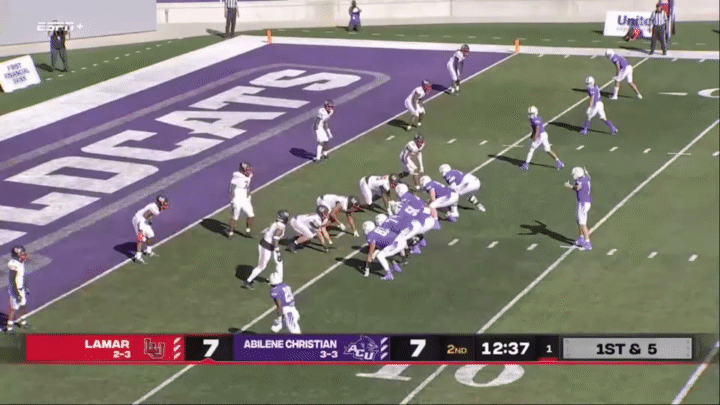
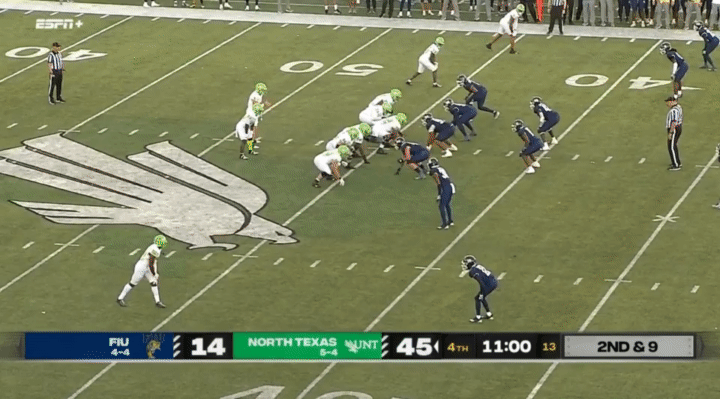
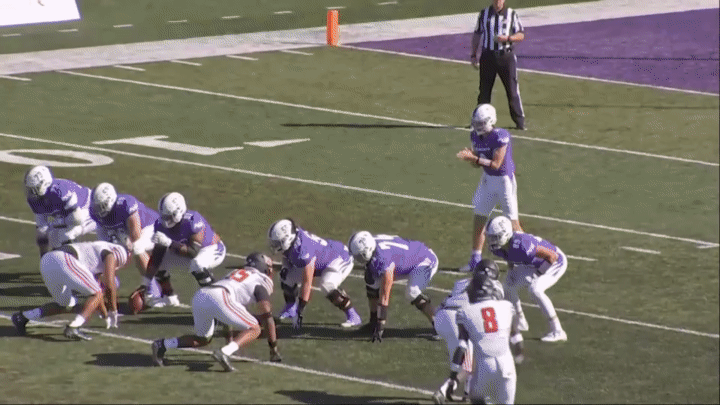
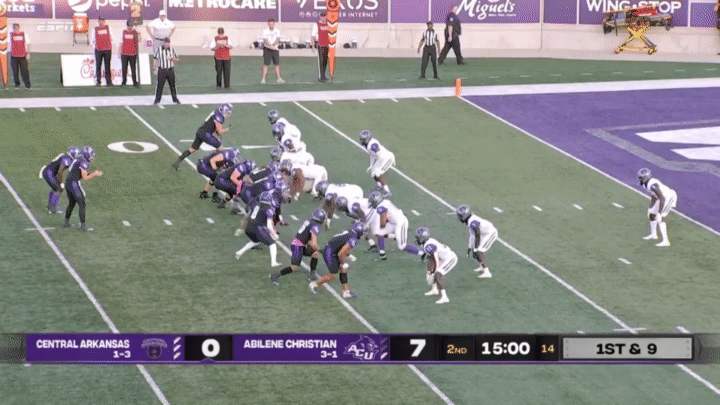
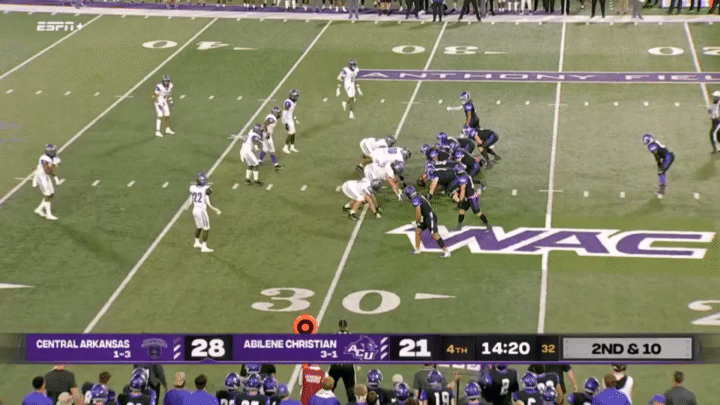
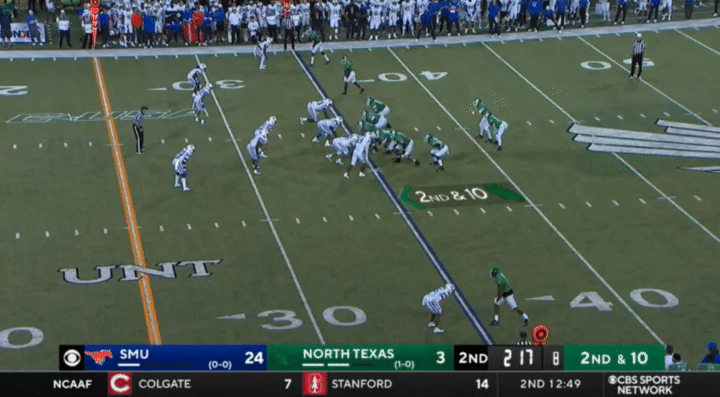
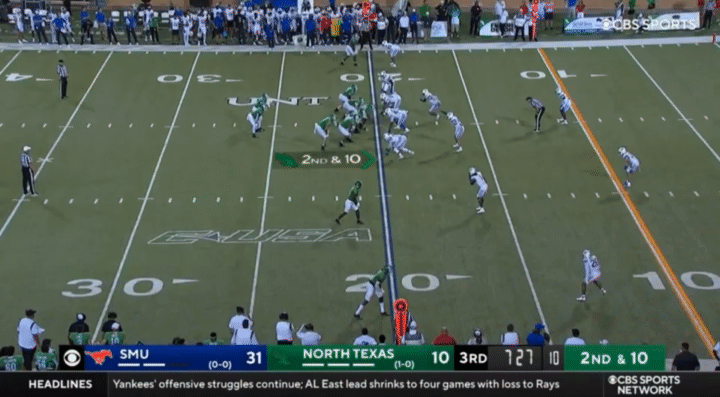
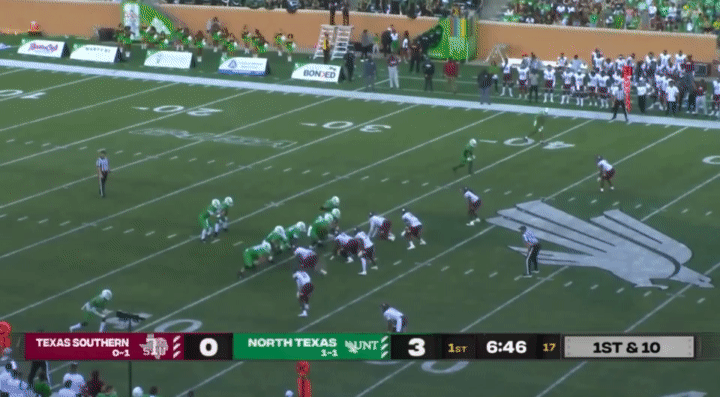
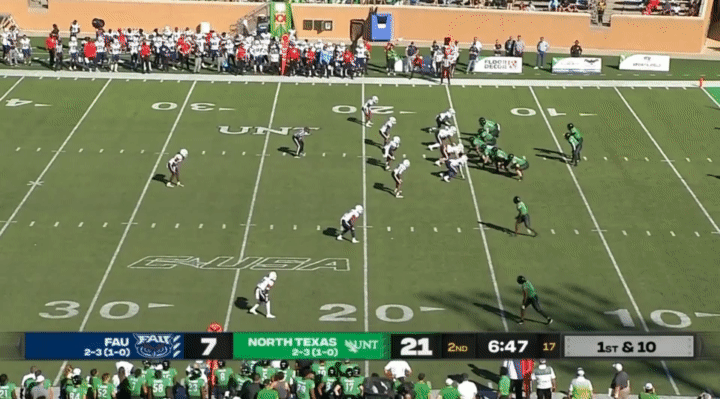
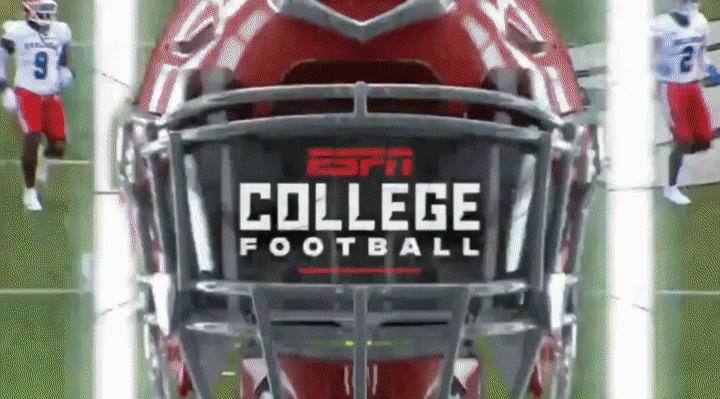
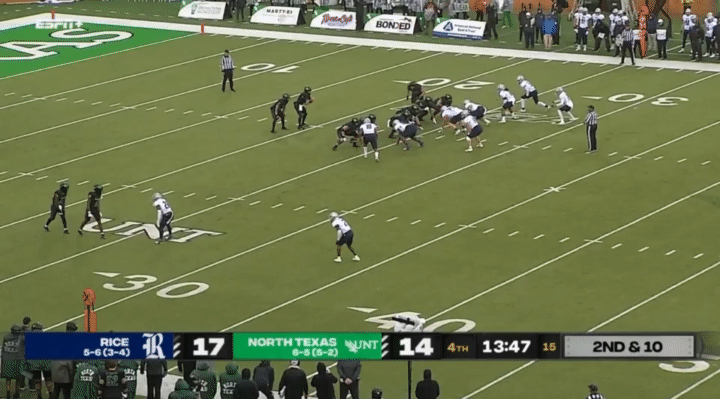
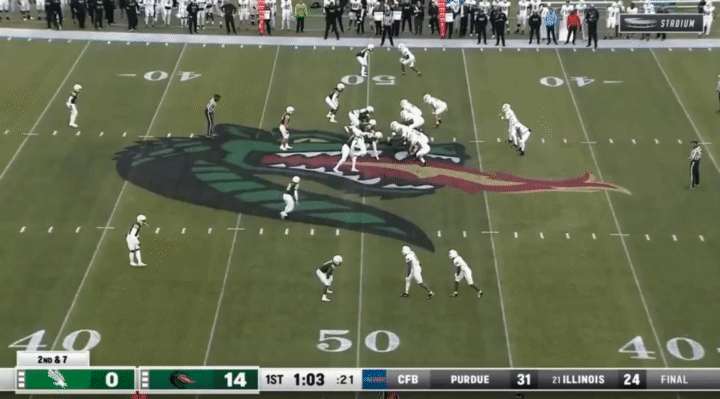
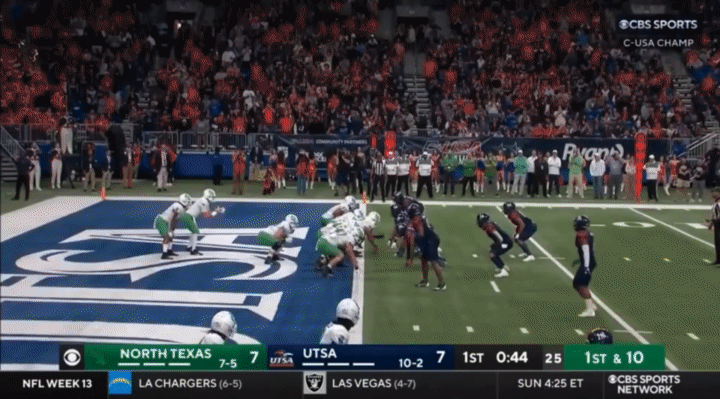
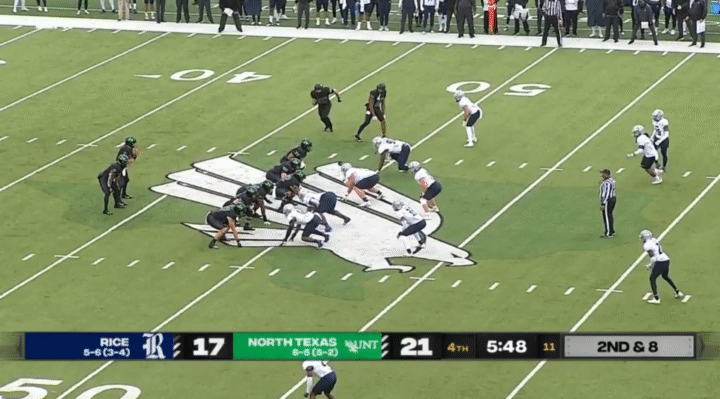
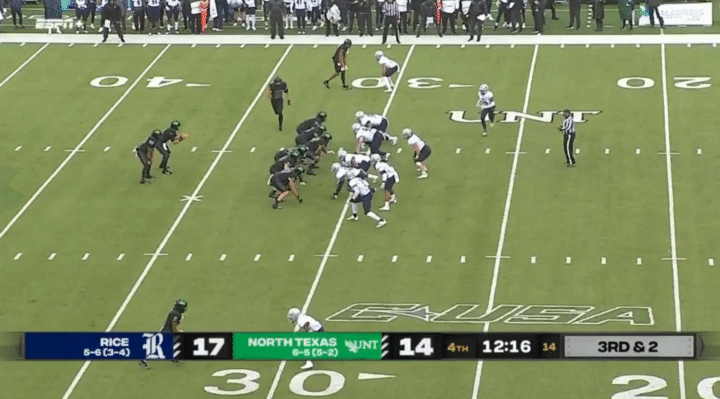
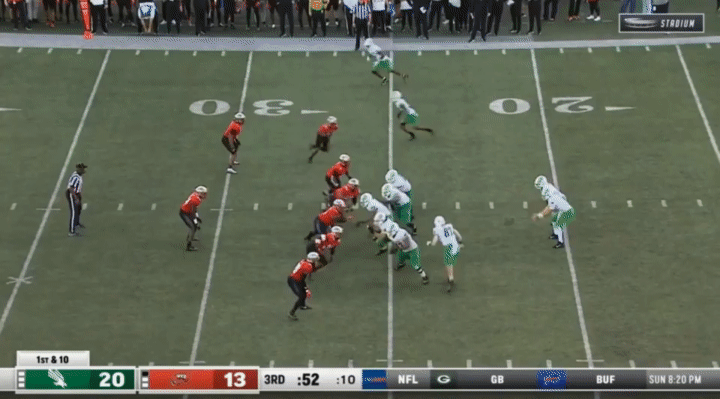
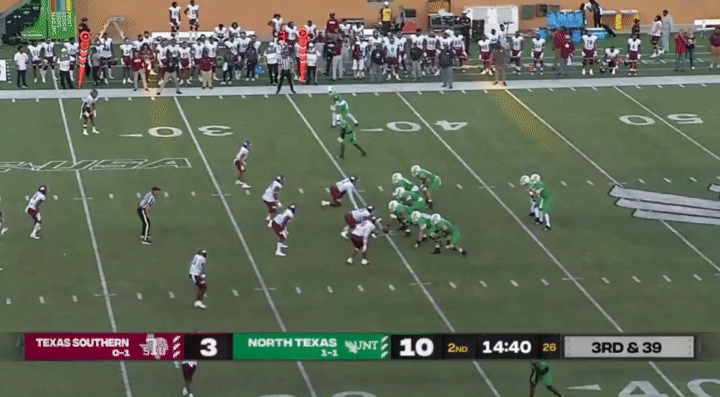
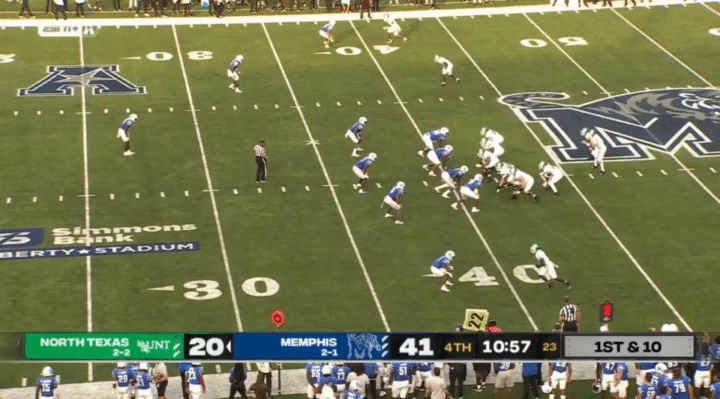
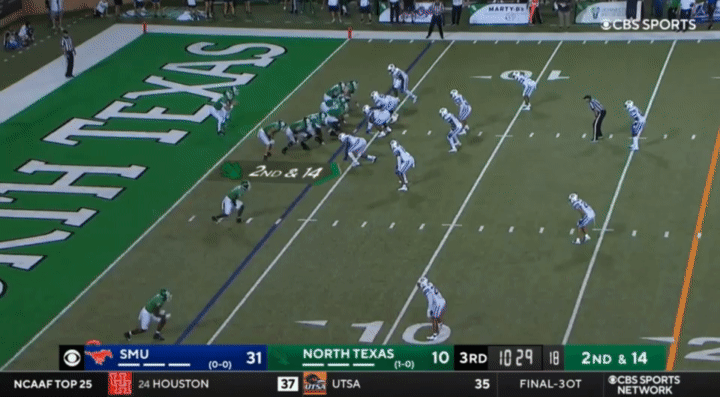
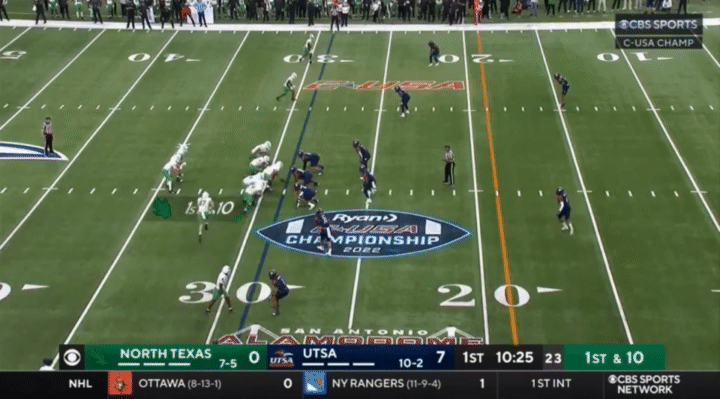
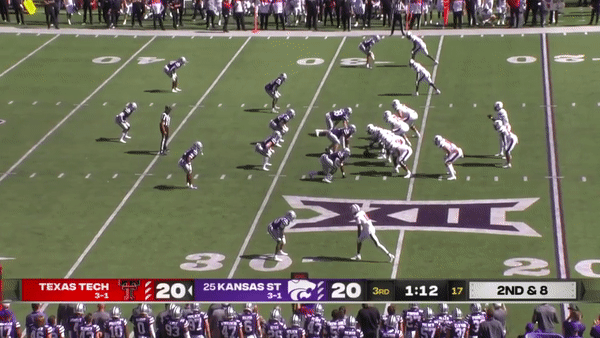
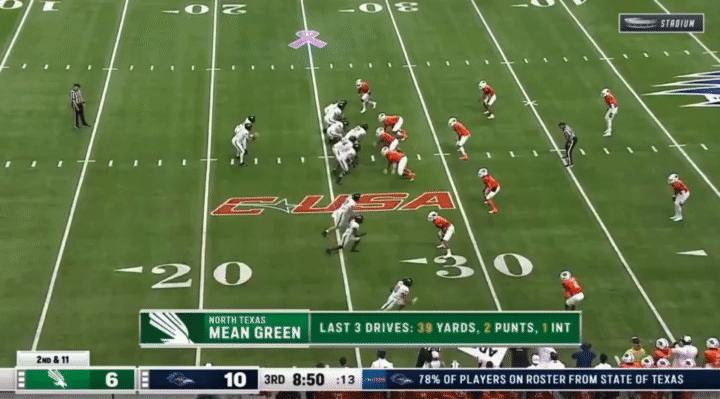
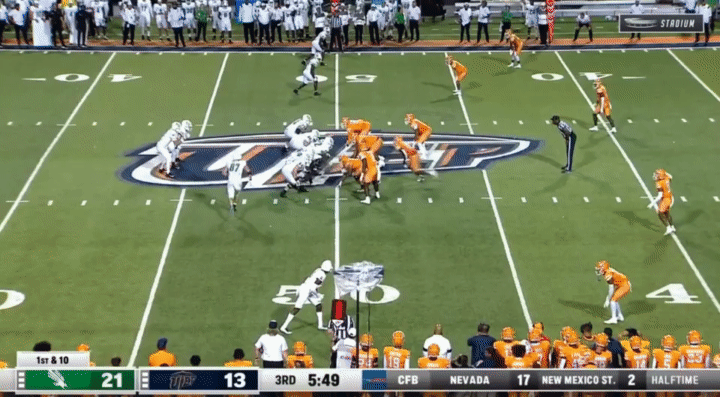
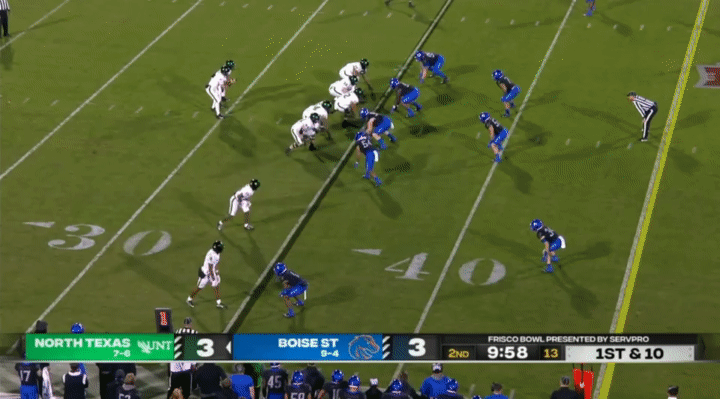
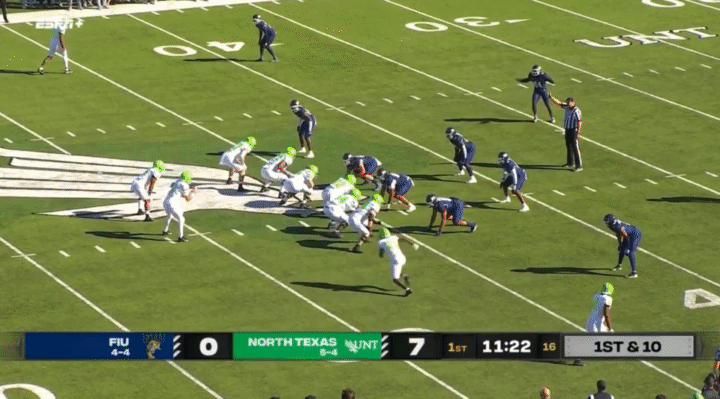
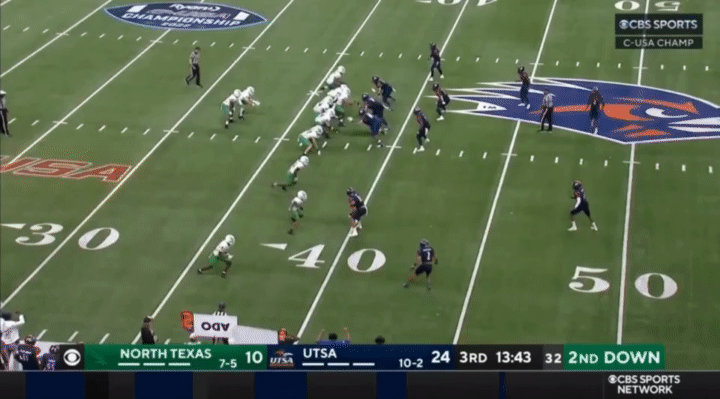
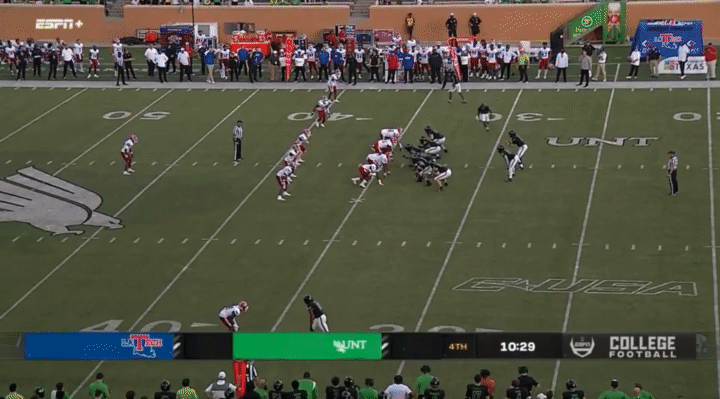
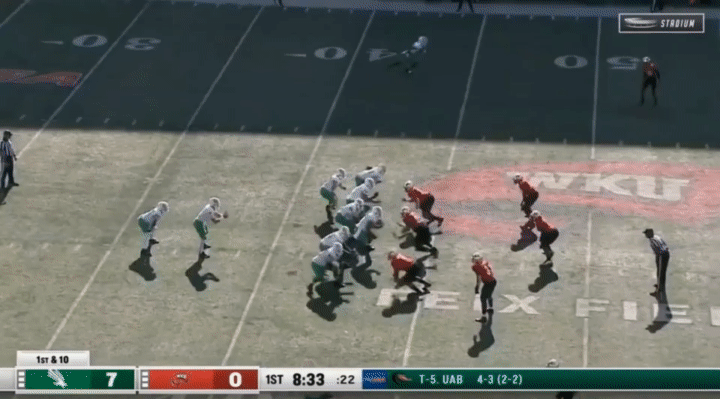
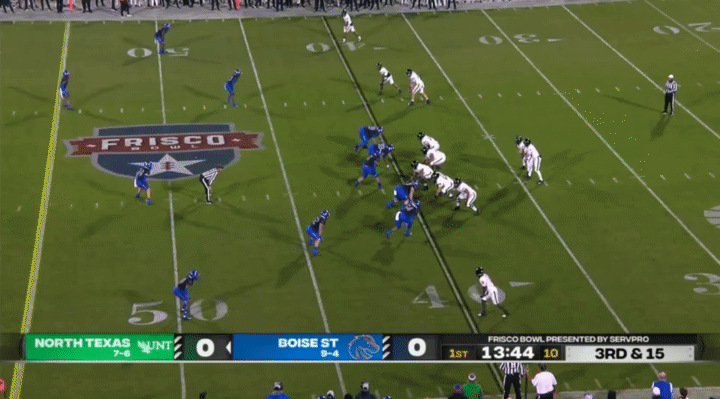
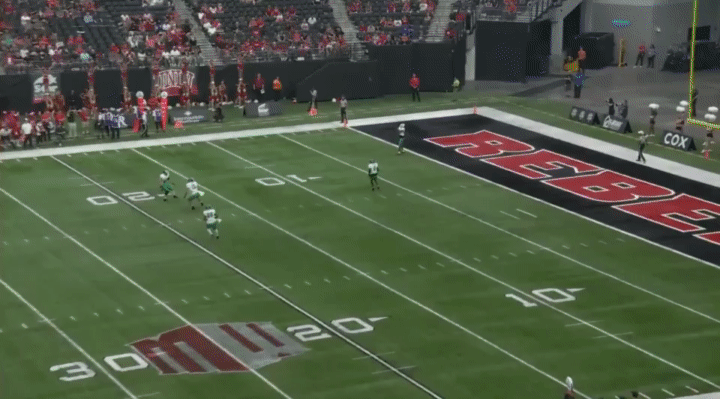
The moment I see this in the draft editor is the moment I knew we are REALLY back to football.
Thank you, once again, Chris, for your laser clear analysis. You seem to be able to make sense out of many of the nuances that would be, otherwise, lost on me. And thank you for that shimmer of optimism about our defense; a much needed booster in dark times.
BTW- does "Mean Green" refer to the artificial turf? Asking for a friend.
Truly, this year and next are either the true beginning or the end of the WIlcox era.